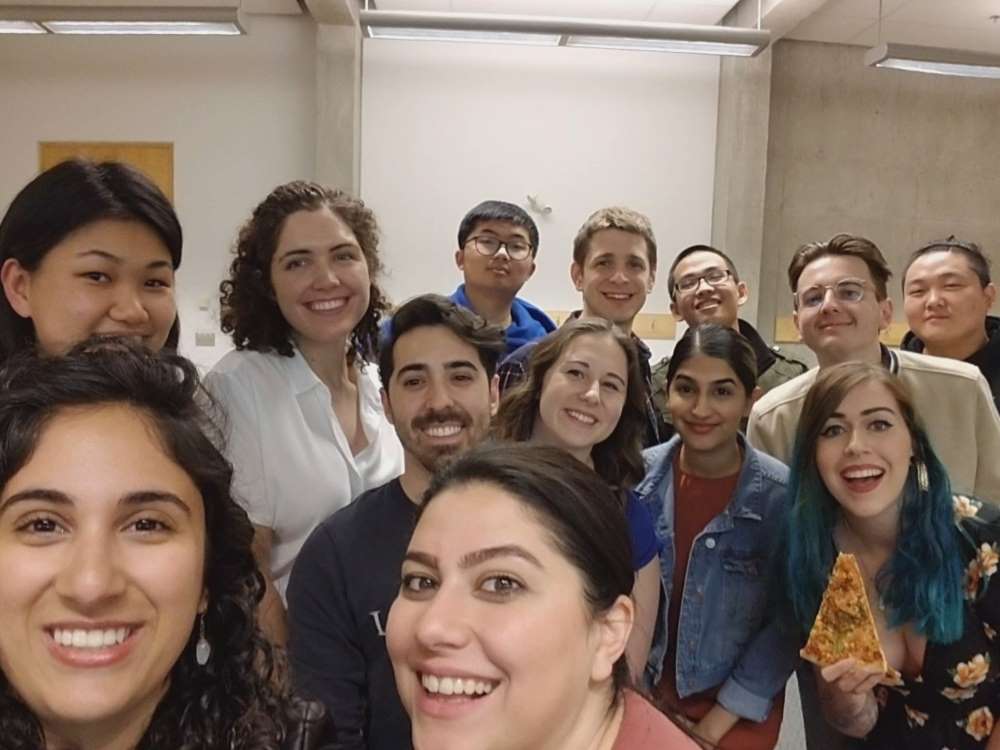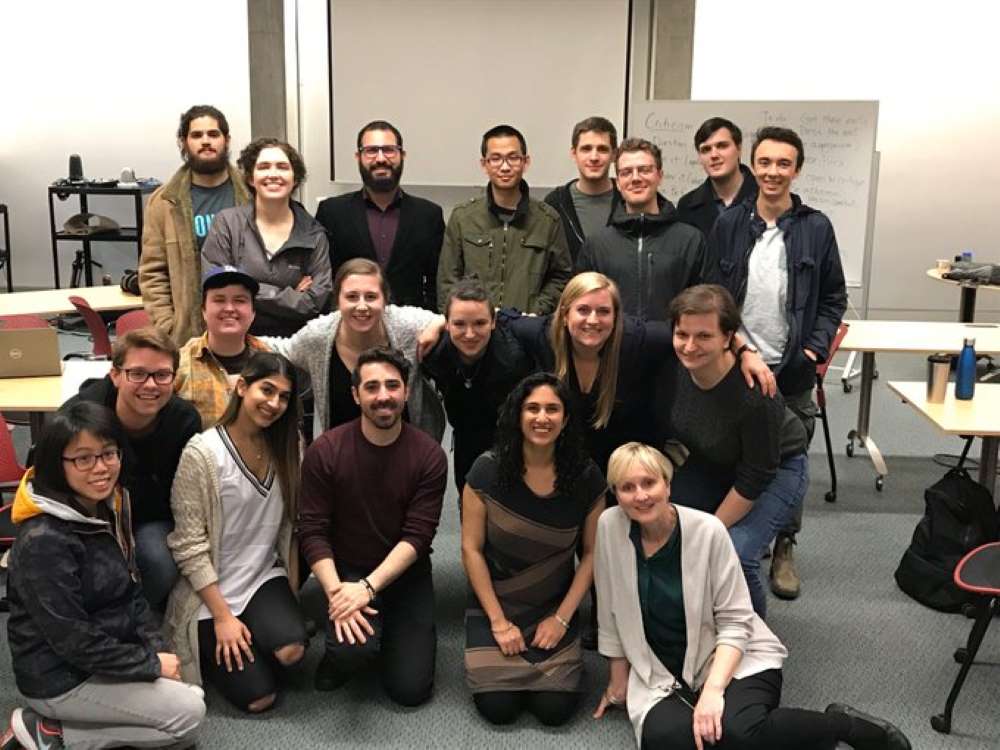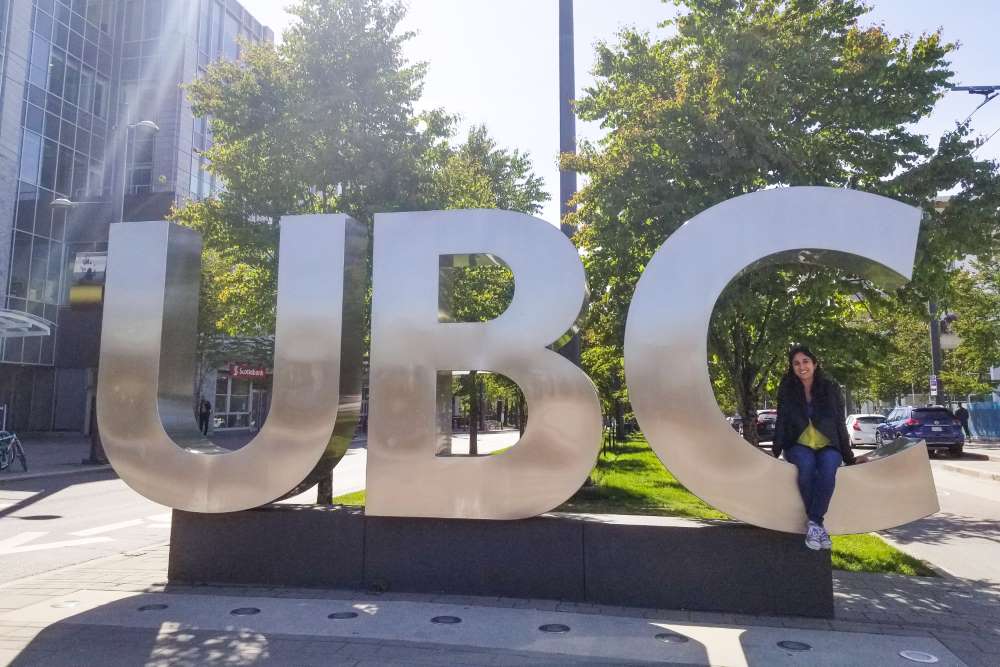Let me start by stating that the Michener Deacon fellowship for journalism education was an incredible experience. The four months on this project flew by with many teaching opportunities, travel to different journalism schools, and research. Here’s what I have accomplished in these past four months.
Teaching at the University of British Columbia
The School of Journalism at UBC made me feel welcome and included me in the teaching team. In Decoding Social Media, the school’s only dedicated course on the subject, I led workshops on storytelling techniques on Facebook, Twitter and Instagram as well broader social media topics such as understanding metrics and analytics, developing editorial strategy, tone and voice. I worked closely with the students and gave them a taste of newsroom editorial feedback on their final projects.

Here are some examples of student work that I mentored.
- Social video on a story about personal debt
- Twitter thread on domestic violence in the South Asian community

In the introductory first year course in the master’s program, I was invited by the lead instructor Kathryn Gretsinger to teach a 3-week module on social media storytelling. I began the class with sharing examples of powerful journalism on social media. I also worked with the students to review their pitches, determine and refine which platform and treatment would be best for their story, and then execute, edit scripts and post on social media. The assignment was to create report and engage entirely on social media.
Here are some examples of student work from that class:
Social media platforms and algorithms change so fast that I rarely stop to think about my decision-making process, especially in deciding which platform and narrative arc is the best. By working with students and teaching them these concepts, I learned to articulate my thought process and really think about how I communicate. I know I will take these learnings back with me to CBC.
Finally, I also helped out in the capstone course, the Global Reporting Program where I worked with the students create social media treatments for their international reporting projects from China, West Africa and Peru, as well as social first treatments in B.C.

Research and travel
During the fellowship, I visited several journalism schools across North America to see how they were teaching social media. Specifically I went to King’s University in Halifax where the program had launched a new “engagement student editor” in their simulated newsroom class to work alongside students who were reporting and producing. I travelled to Ithaca College in Syracuse, NY where there is a dedicated course on social media journalism, taught by the professor who has written the only book I could find on this subject matter. I also went to CUNY which has a master’s of social journalism, where the students learn how to engage with communities meaningfully before doing deep dives in reporting while also taking specialized courses in digital metrics and outcomes. Finally, I also went to the Walter Cronkite School of Journalism at Arizona State University where social media has been integrated into assignments in every class.
I also informally surveyed every journalism school in Canada, and spoke with all the program department heads and professors who responded to gather richer intel on the challenges and opportunities in teaching social media.
The result was an article on J-Source and these webinars on social media journalism, which have both received lots of positive feedback. I circled back with the professors I had surveyed and many said they would use these webinars in their classes.
New opportunities
My research opened up guest speaking opportunities at several journalism schools.
To finish off my fellowship, I was invited to deliver the opening plenary at the Canadian Association of Journalists conference in Winnipeg. I took the opportunity to talk about how social media, while it has its problems, offers us a chance to build community and privilege voices that we wouldn’t necessarily hear in traditional reporting. I also was a panellist on two other talks – journalism on Instagram Stories and powerful storytelling on social media, and got to present my research findings at the conference.
I have loved every minute of my fellowship. I grew professionally and personally over these months, and taking a sabbatical from CBC gave me the space to consider where I want to go next in my career. I’ve discovered a passion for teaching and want to explore that further. But I’ve also come back to CBC with invigorated passion for storytelling. Many thanks to the Foundation for giving me this opportunity.